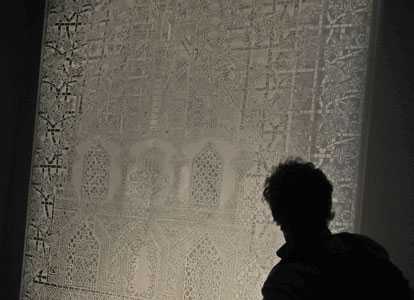CENGİZ AKTAR
Born in Trinidad and Tobago, V.S. Naipaul, an author of Indian descent, couldn’t attend the European Writers’ Parliament in Istanbul because of a disruption initiated by Turkish authors – despite coming to the city last July.
Recently Emir Kusturica, who was invited as a jury member to the International Film Festival in Antalya, was “welcomed” by a similar attitude.
Forget about the content of debates surrounding the presence of Naipaul at an international literary event, we can be sure that Turkey is written off as an intolerant country by the majority of foreign observers. Foreign media regarded both issues as part of the clash of civilizations, some considering intolerance as justifiable and some others unjustifiable.
Let’s now turn to the master. Naipaul is a typical “white Indian.” His thesis regarding Islam appeared concurrently with Salman Rushdie but developed in a different direction. Roughly, he claims that Islam destroyed the cultures of pre-Islamic civilizations that were converted to Islam. For this reason, says Naipaul in his excellent English, Islam is a quasi-totalitarian religion. The plea of the converted people is the main theme of Naipaul’s two books which he wrote after traveling to Indonesia, Iran, Malaysia and Pakistan. In his book “The Masque of Africa: Glimpses of African Belief,” on Islam in Black Africa, Naipaul also sets out with a similar prejudice. He asserts Islam is a religion of and for Arabs only; therefore, every nation but Arabs are converts who were harmed by Islam. With such a thesis Naipaul directly ends up in the laps of the most archaic Islamophobia.
The claim of Islam being a totalitarian religion is quite old. Is there only one single interpretation of Islam? Does Christianity not consider pre-monotheistic beliefs illegitimate? Is it possible that Naipaul, coming from British culture, doesn’t know the odd experiences of Black Africans who were converted by force to Christianity as much as he knows of Black Africans who converted to Islam?
Obsession with Islam
In this context, the country Naipaul examined the least is India; the real source of his obsession. Let us recall his attitude regarding the Babri Mosque attack.
The Babri Mosque in the city of Ayodhya in Fayzabad was built in 1527-28 following the invasion of the subcontinent by Babur Shah in the 16th century. It was demolished by radical Hindu militants because it was constructed on a holy site, known as the birth place of the Indian divinity Rama. In a subsequent revolt, around 2,000 people died. Before and after the attack, the mosque had become a source of conflict between Muslim and non-Muslim Hindus, just like the al-Aqsa/Temple Mount in Jerusalem between Muslims and Jews. Coincidentally, last October the Indian judiciary announced the verdict on the Ayodhya raid and divided the holy site into three but the holy structure of the Muslims remained in the territory of non-Muslims.
Our author didn’t condemn the Ayodhya disaster once, and acted insolently by saying that it was the result of Hindus’ “creative passion!”
Naipaul is a leader in Islamophobia and has gained the fame that came along with it in the West. Other Islamophobic performers who go back and forth between scandals and provocations while peddling occasional pseudo-scientific claims are Taslima Nasrin of Bangladesh, who lives in Sweden; Ugandan-Indian Irshad Manji, who lives in Canada; Walid Shuabat of Palestine, Wafa Sultan of Syria and Ayaan Hırsi Ali of Somalia, who all live in the United States; Anwar Sheikh of Pakistan, who lives in Britain; Afshin Elian of Iran, who lives in the Netherlands; and Necla Kelek of Turkey and Bassam Tibi of Syria, who live in Germany.
However, the way to deal with this trend is not to ban the freedom of expression of its representatives in Islamic countries. Otherwise, there remains no difference between Naipaul’s Islamophobia and pro-ban groups who do not want him to visit a Muslim neighborhood.
In this, Voltaire’s words, “I do not agree with what you have to say, but I’ll defend to the death your right to say it,” should be the norm.
The European Writers’ Parliament, convened recently in Istanbul as part of the European Capital of Culture, was a perfect forum to discuss all these. But that didn’t happen. What a missed opportunity!


Leave a Reply